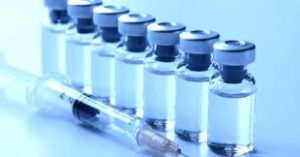Vaccination Rates Low Among Medicaid Recipients
Individuals enrolled in Medicaid are less likely to have received COVID-19 vaccines than the population as a whole, according to a recently published report.
 Among the possible reasons for this low rate, observers speculate, is greater vaccine hesitancy among low-income individuals (as identified in a nation-wide survey), less flexible work schedules, and economic barriers such as lack of transportation or child care.
Among the possible reasons for this low rate, observers speculate, is greater vaccine hesitancy among low-income individuals (as identified in a nation-wide survey), less flexible work schedules, and economic barriers such as lack of transportation or child care.
This can pose a special challenge for Pennsylvania safety-net hospitals because the communities they serve have more Medicaid beneficiaries than the typical community.
Learn more about the extent of the problem around the country and what state Medicaid programs are doing to encourage more Medicaid beneficiaries to roll up their sleeves and get vaccinated in the Roll Call article “Medicaid beneficiaries less likely to get COVID-19 shots.”
 Department of Health – news briefing
Department of Health – news briefing Department of Human Services
Department of Human Services Resources to Consult
Resources to Consult